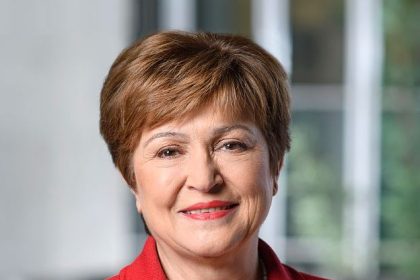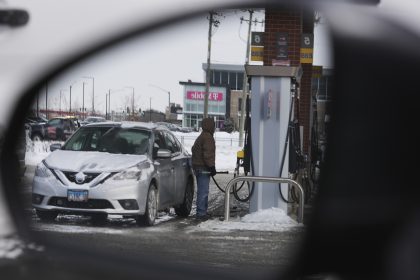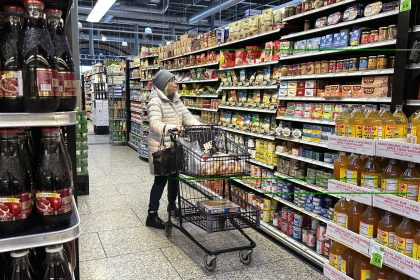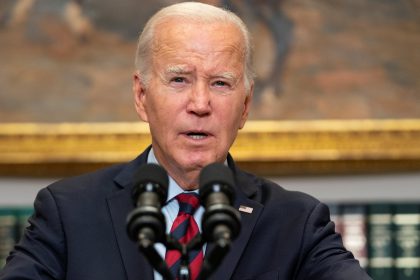US Not Yet in Recession and Four Other Takeaways From the Fed
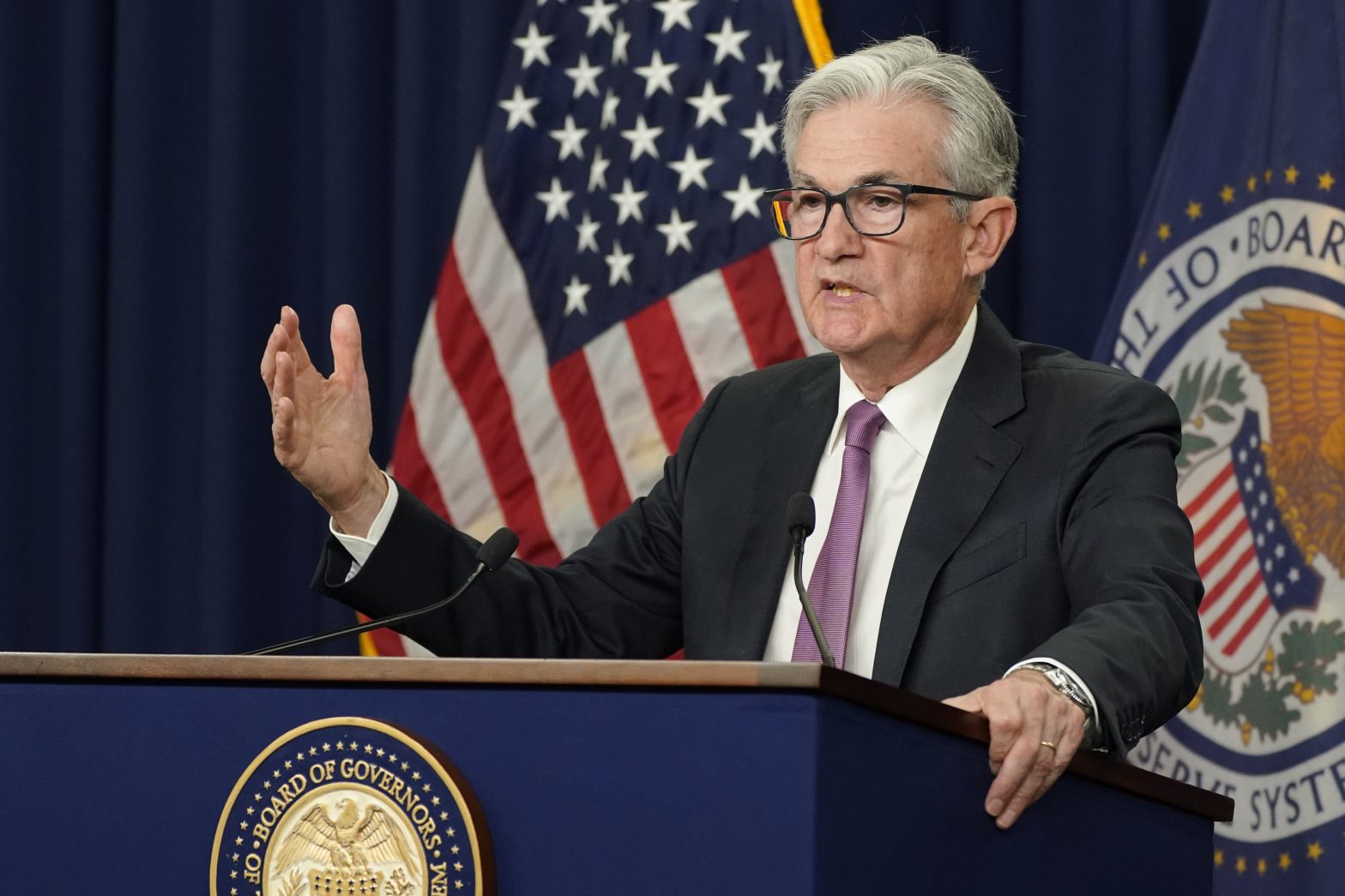
WASHINGTON (AP) — Jerome Powell delivered a tough message at the start of a news conference Wednesday: Inflation is way too high, and the Federal Reserve is laser-focused on taming it with higher borrowing costs.
Yet despite his resolute words, the Fed chair also said for the first time that the central bank’s actions are already having an effect on the economy in ways that could slow the worst inflation the nation has endured in four decades.
With the Fed’s benchmark interest rate now at a level that’s believed to neither stimulate nor restrain growth, Powell said the pace of rate hikes could slow in the coming months. And he pointed to signs that many businesses are having an easier time filling jobs, a trend that would limit pay increases and potentially slow inflation.
“There were some hints that we’re closer to the end than the beginning” of the Fed’s efforts to tighten credit, said Michael Feroli, an economist at JPMorgan Chase and a former Fed staffer.
Powell’s suggestion that the Fed could moderate its future rate hikes after it announced a three-quarter-point hike Wednesday — its second in a row of that substantial size — helped touch off a celebratory rally in the stock market, with the S&P 500 jumping 2.6% and the tech-heavy Nasdaq rocketing 4.1%, its biggest gain in more than two years.
Some economists didn’t share the market’s optimism. They noted that Powell kept the door open to another big rate increase when the Fed next meets in September. The Fed chair also indicated that even if the economy were to fall into a recession, the central bank would keep raising rates if it deemed that necessary to curb still-high inflation.
When asked at his news conference whether a recession would alter the Fed’s course of rate hikes, Powell said simply, “We’re going to be focused on getting inflation back down.”
Here are five takeaways from the Fed’s interest-rate setting policy meeting and Powell news conference:
___
POWELL: U.S. NOT IN RECESSION
A slew of recent data has signaled the economy is weakening. Economists are increasingly forecasting a recession for later this year or in 2023. Powell, though, pointed Wednesday to the robust labor market as evidence the economy isn’t in recession, at least not yet.
Employers, he noted, added 2.7 million jobs in the first half of the year, the 3.6% U.S. unemployment rate is near a 50-year low and wage growth is strong.
“It doesn’t make sense that the economy could be in recession with this kind of thing happening,” the Fed chair said.
___
JOBS OVER GDP
On Thursday, the government will estimate second-quarter gross domestic product, the broadest measure of the nation’s output of goods and services. Some economists think the GDP report will show that the economy contracted for a second straight quarter, which would meet an informal definition of recession.
But even if it does, the definition of recession that is most widely accepted is the one determined by the National Bureau of Economic Research, a group of economists whose Business Cycle Dating Committee defines a recession as “a significant decline in economic activity that is spread across the economy and lasts more than a few months.”
Powell also noted that the government’s estimate of quarterly GDP is often significantly revised later and that the initial reports on economic growth should be taken with “a grain of salt.”
The Fed chair did sound a cautionary note, pointing out that there are signs that momentum in the job market is easing. Job openings have declined modestly, more people are seeking unemployment aid and hiring is lower than it was at the start of the year.
___
SLOWER GROWTH, HIRING GOOD
But even those signs of a slightly weaker job market are not all bad news, at least from the Fed’s perspective.
The Fed wants to cool the economy through its rate hikes, which make home mortgages, auto loans and business borrowing more expensive. As consumers and businesses spend less, the resulting pullback in demand can bring inflation down closer to the Fed’s 2% annual target.
“We think it’s necessary to have growth slow down, and growth is going to be slowing this year,” Powell said.
___
HOW HIGH WILL RATES GO?
Since early this year, the Fed has steadily ratcheted up its forecasts for how fast and how high it would have to raise rates to conquer inflation. On Wednesday, though, Powell said that estimates that Fed policymakers made a month ago for where rates would go next was still the best guide.
In June officials projected that the Fed’s key rate would reach between 3.25% and 3.5% at the end of this year, which Powell said was a “moderately restrictive” level. And at least two additional rate hikes were forecast for next year.
For the Fed to meet that year-end target would involve a half-point increase in September, and two quarter-point hikes in November and December. Such increases would represent a much more modest pace than the 2.25 percentage points of hikes the Fed has now carried out in just the past four meetings, the fastest pace since the early 1980s.
___
THE FED ISN’T ALONE
Other major central banks around the world have also been imposing big rate increases to combat inflation, which has spiked in nearly all advanced economies.
The European Union raised its short-term rate by a half-point last week. Canada’s central bank announced a full percentage point increase earlier this month. Last month, the Swiss National Bank implemented a half-point hike, its first increase in 15 years.
Although higher rates around the world could help throttle inflation, they also carry the threat of causing a global economic slowdown.
This week, the International Monetary Fund downgraded its outlook for world economic growth to 3.2% this year. That was down from a 3.6% estimate in April and much slower than last year’s 6.1% pace.

















